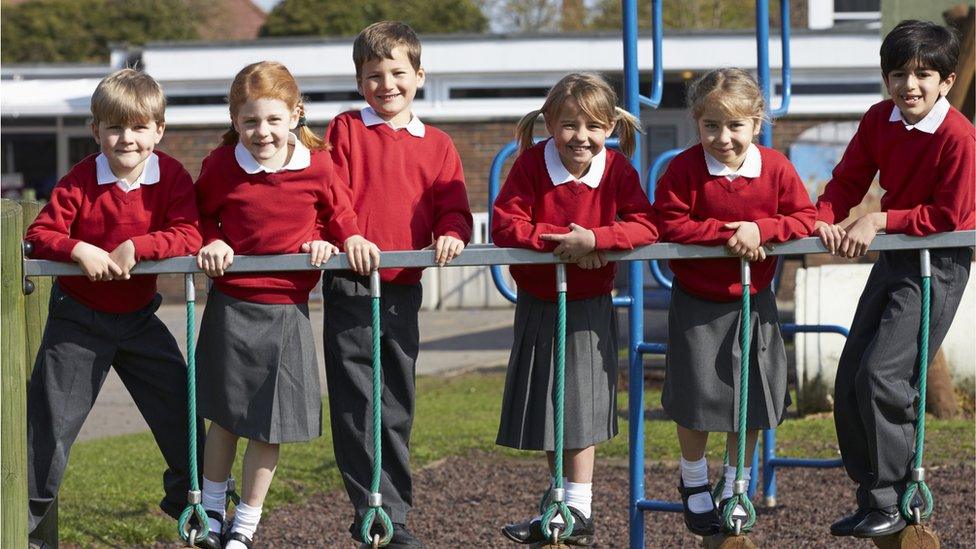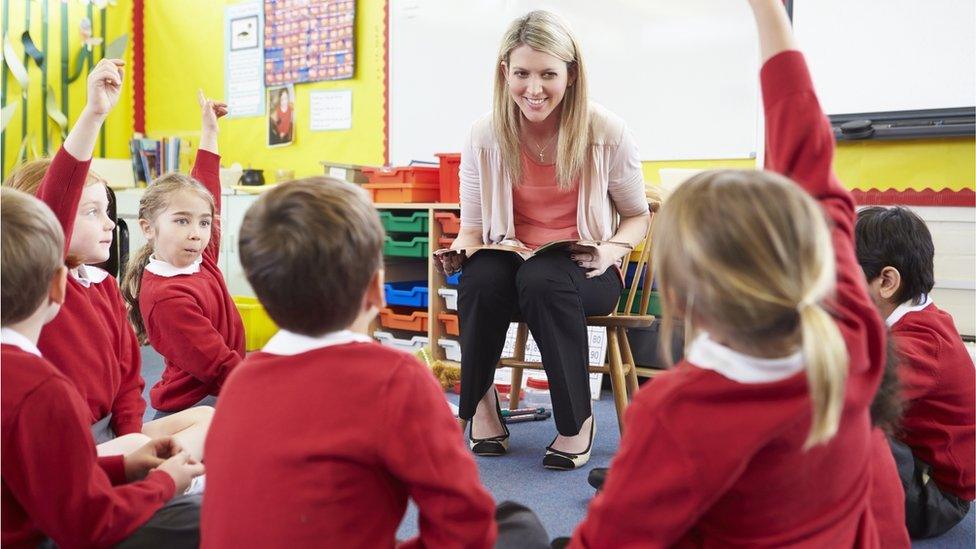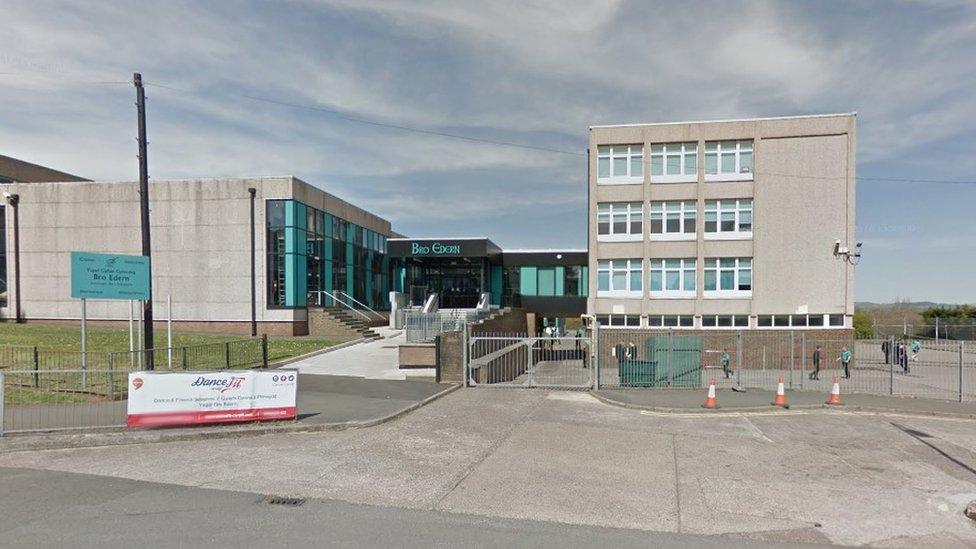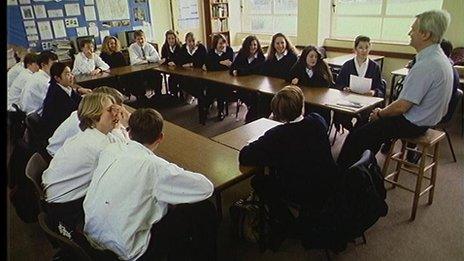Pupil problem-solving scheme improves behaviour and attendance
- Published

Pupils are encouraged to resolve problems among themselves
Two years after starting a pupil-led approach to resolving problems in and out of the classroom, a number of schools in Wales say they have seen improvements in behaviour and attendance.
The idea behind "restorative practice", as the approach is known, is to encourage pupils to address any problems they have with each other, instead of going to the teachers.
Maerdy Community School in Rhondda Cynon Taf introduced restorative practice two years ago.
Harry Allan is the Year 5 teacher at Maerdy Community School.
He said: "The children are being asked to solve their problems amongst themselves. That has helped them become more respectful to each other."
"They are seeing that their actions can affect others and not just themselves."
A group of pupils in Maerdy Community School are trained to be peer mediators.
It is their job to deal with the minor problems on the school yard.
They do this by asking the children involved questions including: "What were you thinking?" and "How did it make you feel?"

Children can take part in circle time to discuss how they are feeling
Georgia, a Year 5 pupil, is one of the trained peer mediators. She said: "Sometimes when pupils talk to the teachers, they get a bit shy."
"They have done something wrong and they don't want to admit it. But they will tell us the truth."
As well as the peer mediator's scheme, the school also run "circle time" sessions every week.
Children can use this time to talk about how they are feeling and what is worrying them.
Beth Bradbury is the complex needs teacher at Maerdy Community School.
She said: "We've got children here with emotional behaviour problems."
"Since we introduced a restorative approach, we have seen an improvement in behaviour but we have also seen a rise in attendance."
Another school that adopts a restorative approach is Ysgol Gymraeg Bro Eirwg, in Cardiff.
But instead of peer mediators, they have "friendly listeners".

Ysgol Gyfun Gymraeg Bro Edern holds a restorative circle once a month
Iwan Davies is a teacher at Bro Eirwg. He said: "Children know there is always someone to turn to on the yard.
"With minor incidents, the friendly listeners know how to deal with it. But they also know to pass more serious issues on to the staff."
The approach builds on trials of the scheme which were run in a number of south Wales secondary schools including Cardiff's Fitzalan High and Monmouthshire's Monmouth Comprehensive.
Those included trying to prevent exclusions and reduce the number of young people becoming "Neets" - not in employment, education or training once they leave compulsory schooling.
The Welsh Government now recommends the practice as a way to reduce pupil exclusions.
Councils in areas such as Swansea, Gwent, Rhondda Cynon Taf and Cardiff now all encourage their schools to adopt a restorative practice approach.
A secondary school in Cardiff, Ysgol Gyfun Gymraeg Bro Edern, holds a restorative circle once a month.
The deputy head teacher, Iwan Williams said: "Quite a lot of information is coming out, which we as staff can then help the children with".
"The children are also telling us that their relationships are becoming stronger, because they are listening to people they don't normally have a conversation with."
Jack Young is a year 10 student at Bro Edern. He said: "When we were coming up to our GCSE's, we would talk about what was worrying us.
"From that, the teachers would find ways to help us succeed."
- Published19 February 2014
